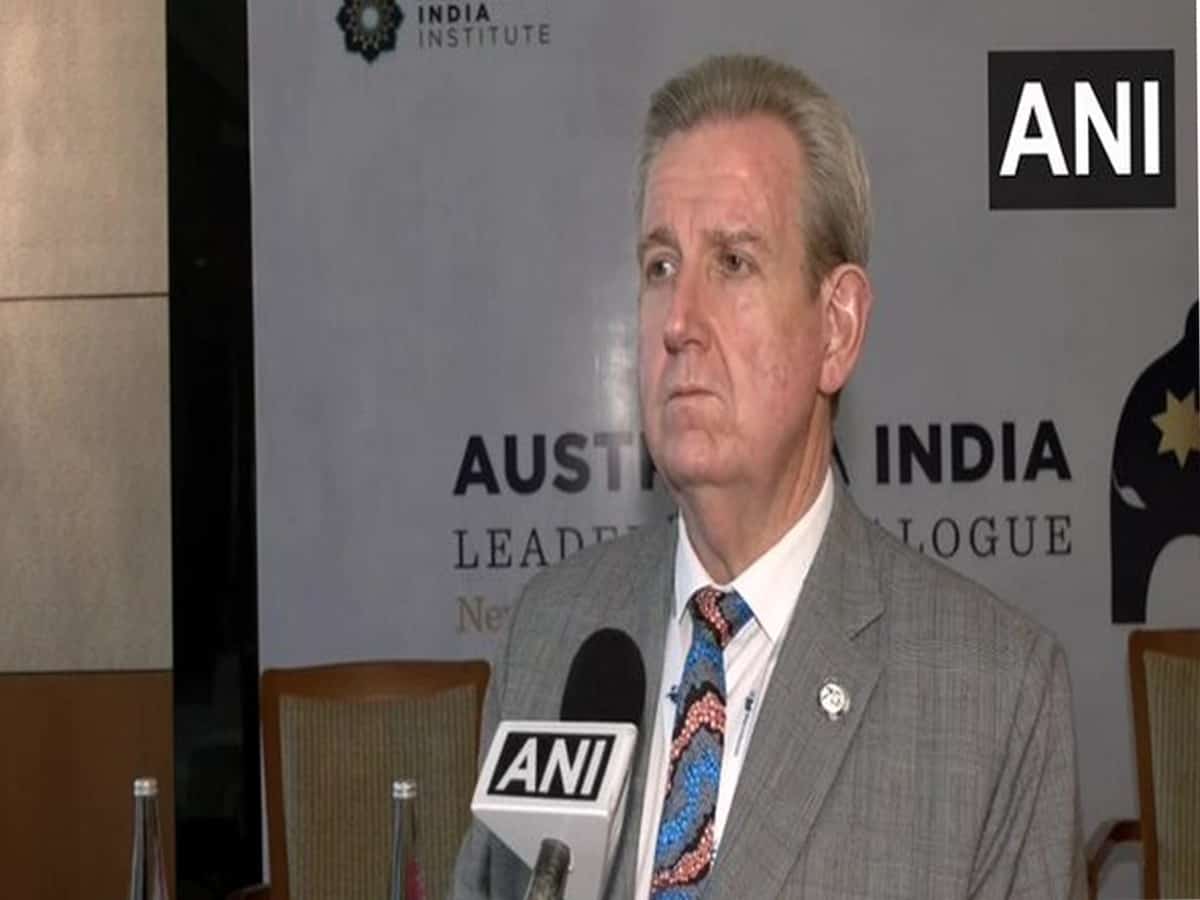
New Delhi : Australian High Commissioner to India, Barry O’Farrell on Tuesday lauded India’s economic stability and said “India has markets that can help us grow in the post-COVID world.”
In an exclusive interview with ANI, the Australian High Commissioner congratulated India on becoming the 5th largest economy in the world.
“India and Australia are complementary economies. We have elements to assist India to grow, India has markets that can help us grow in the post-COVID world. For democracy, when you do trade deals. There’s got to be benefits for both countries,” he said.
Speaking about India-Australia 1.5 track dialogue, Barry O’Farrell said, “It’s an opportunity to bring together academics, business people and think tankers to discuss common problems and see greater cooperation between both countries as we are tackling similar issues.
Sharing his view on the next Quad hosting by Australia, Barry O’Farrell said, “I am delighted that Australia is hosting quad leaders meeting next year, which means PM Modi will visit Australia… India, Australia, Japan & US are focused on their region, security, health needs and climate change issues.”
Regarding Economic Cooperation and Trade Agreement (ECTA) and Double Taxation Avoidance Agreement (DTAA), he said that the commitments by the Australian Government will be delivered “but democratic countries have to go through a process and in our case, that’s happening as quickly as possible.”
India and Australia Saturday signed an Economic Cooperation and Trade Agreement (IndAus ECTA) which is set to provide zero-duty access to 96 per cent of India’s exports to Australia including shipments from key sectors such as engineering goods, gems and jewellery, textiles, apparel and leather.
The pact is expected to boost bilateral trade in goods and services to USD 45-50 billion over five years, up from around USD 27 billion, and generate over one million jobs in India, according to a government estimate.
The agreement will also give about 85 per cent of Australia’s exports zero-duty access to the Indian market, including coal, sheep meat and wool, and lower-duty access to Australian wines, almonds, lentils, and certain fruits.
Zero-duty access for Indian goods is set to be expanded to 100 per cent over five years under the agreement.
India and Australia enjoy excellent bilateral relations that have undergone transformative evolution in recent years, developing along a positive track, into a friendly partnership.
This is a special partnership characterized by shared values of a pluralistic, parliamentary democracy, Commonwealth traditions, expanding economic engagement, long-standing people-to-people ties and increasing high-level interaction.
The India-Australia Comprehensive Strategic Partnership was initiated during the India-Australia Leaders’ Virtual Summit.
Growing India-Australia economic and commercial relations contribute to the stability and strength of a rapidly diversifying and deepening bilateral relationship between the two countries. (ANI)



